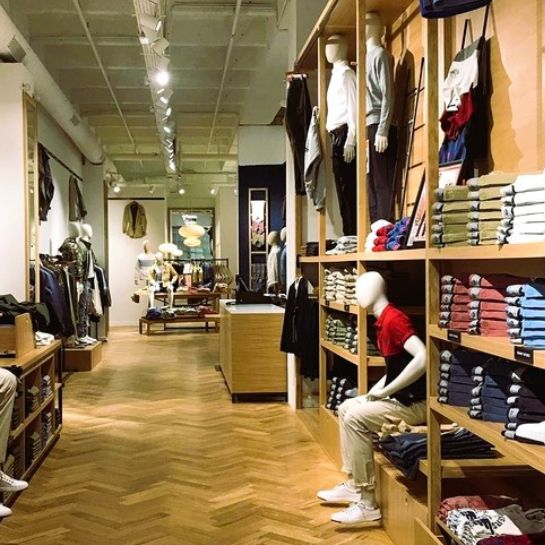07.08.2024
In the age of digitalization, it’s not just e-commerce that is gaining popularity—physical stores are also introducing modern solutions aimed at increasing efficiency, improving customer experiences, and better managing inventory. Let’s look at seven technological trends in brick-and-mortar retail.
According to experts from the research firm CB Insights, retail networks will increasingly collaborate with service providers such as virtual dietitians or online medical consultations to offer personalized consumer experiences through AI, promote new products, and gather detailed data on customer needs and preferences. In physical stores, AI can support salespeople by providing information about customer preferences, making it easier to recommend products that meet their expectations.
AR and VR technologies are becoming more prevalent in retail. AR allows customers to try on clothes or accessories without physically wearing them—using just a smartphone or a special mirror. VR, on the other hand, can transport customers to virtual versions of stores where they can browse and purchase products in entirely new ways. These technologies not only increase customer engagement but also contribute to sales growth. See how the virtual fitting room works at the Janki Shopping Center near Warsaw:
Equipped with a screen, scale, sensors, and a camera, smart shopping carts allow customers to log in, use loyalty offers, and make cashless payments. They can also encourage customers to check out new products, suggest complementary or promotional items, and help them find their way around the store.
In an era focused on sustainable development, smart packaging can be a suitable solution with features such as automatic inventory replenishment and notifications to consumers. Sensors on reusable packaging can signal when a product is running low. The packaging can then be refilled at specially designated areas in the store.
The COVID-19 pandemic accelerated the development of contactless payment methods. NFC (Near Field Communication) payment terminals and mobile payments, such as Apple Pay or Google Wallet, have become standard. These methods make shopping faster and safer, and customers feel more comfortable by reducing physical contact with payment devices.
Traditional checkouts, and even the now-common self-service checkouts, still create bottlenecks in stores. Therefore, store owners, especially in the grocery sector, are experimenting with new cashierless systems that require practically no interaction from the customer. Modern cashierless systems use cameras and sensors to track customers throughout the store, summing up the value of the products they add to their cart. After completing their shopping, customers can leave the store freely, and their account will be automatically charged for the items they purchased. This solution is already successfully used by Żabka Polska in selected autonomous Żappka Stores.
Geolocation technologies and beacons (miniature sensors using Bluetooth technology) are becoming increasingly popular in physical stores. They enable the tracking of customer movement within the store and the analysis of their shopping paths. Beacons can also send personalized offers and promotions to customers’ smartphones when they are in specific parts of the store, leading to increased customer engagement and higher sales.
Technologies in brick-and-mortar retail not only improve operational efficiency but also revolutionize customer shopping experiences. Physical stores gain new opportunities to compete in a dynamically changing market. The future of retail is the integration of technologies that will make shopping more personalized, convenient, and attractive for customers.
Photo: Tara Winst / Pexels, Zero Qs, YouTube

12.02.2026
Dockers is one of the global apparel brands that Ergo Store has supported for years, delivering brick-and-mortar retail spaces across various parts of Europe. What are the most distinctive features of the brand’s store concept, which until 2025 was part of Levi Strauss & Co.?